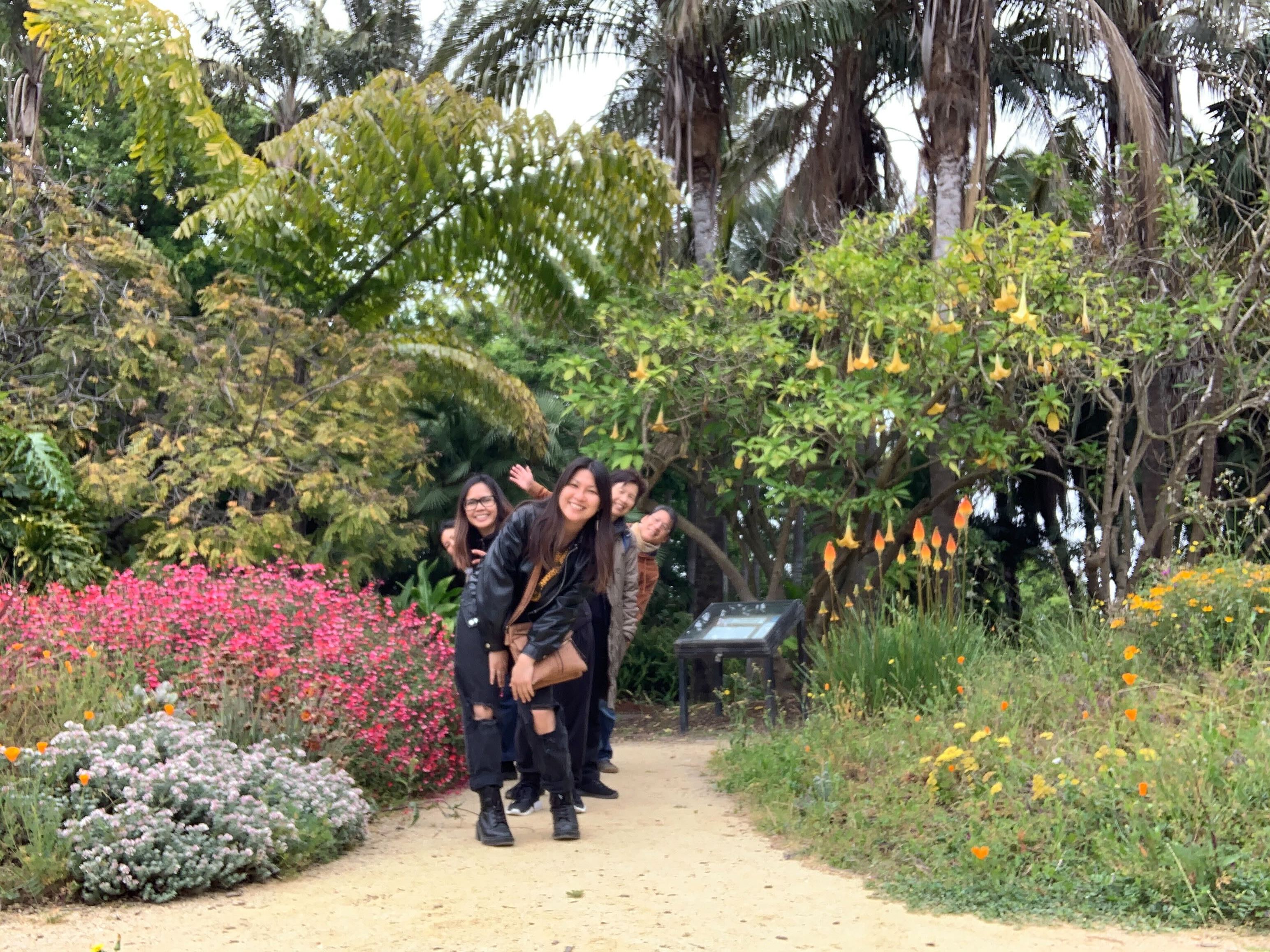Bring CompassPoint to Your Organization
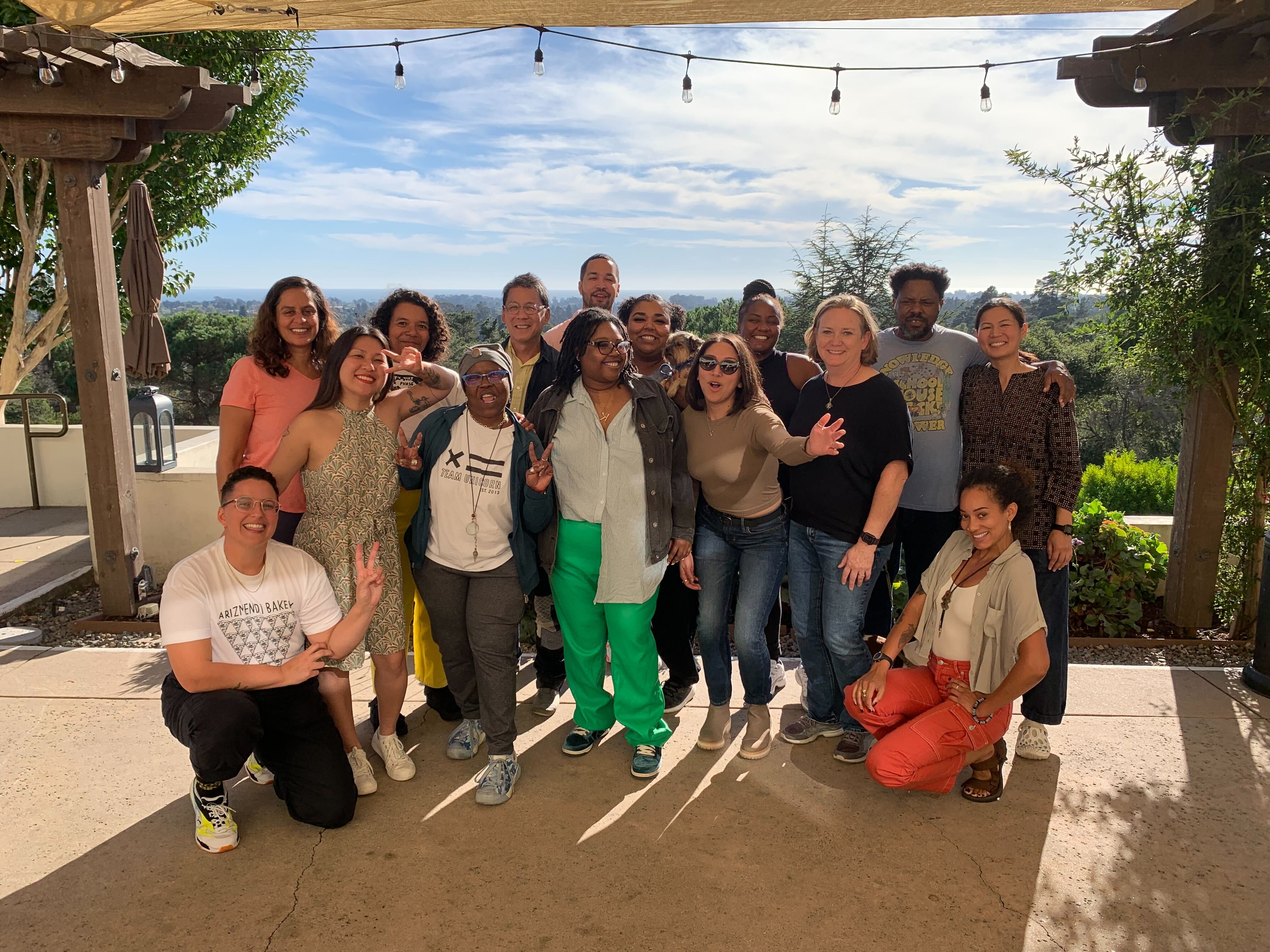
Learning as a team can be a powerful way to shift practices, systems, and culture across your organization. CompassPoint is now offering "in-house" learning experiences that build upon the content from our public workshops and can be tailored specifically for your organization's goals around growth, learning, and change.
What distinguishes our approach to capacity building and consulting?
We are a values-driven team of nonprofit leaders, bringing our collective wisdom, creativity, lived experiences, shared passion for social justice, and years of knowledge about the nonprofit sector and working in social movements to every partnership and project. Most importantly, we create conditions for you to do the same.
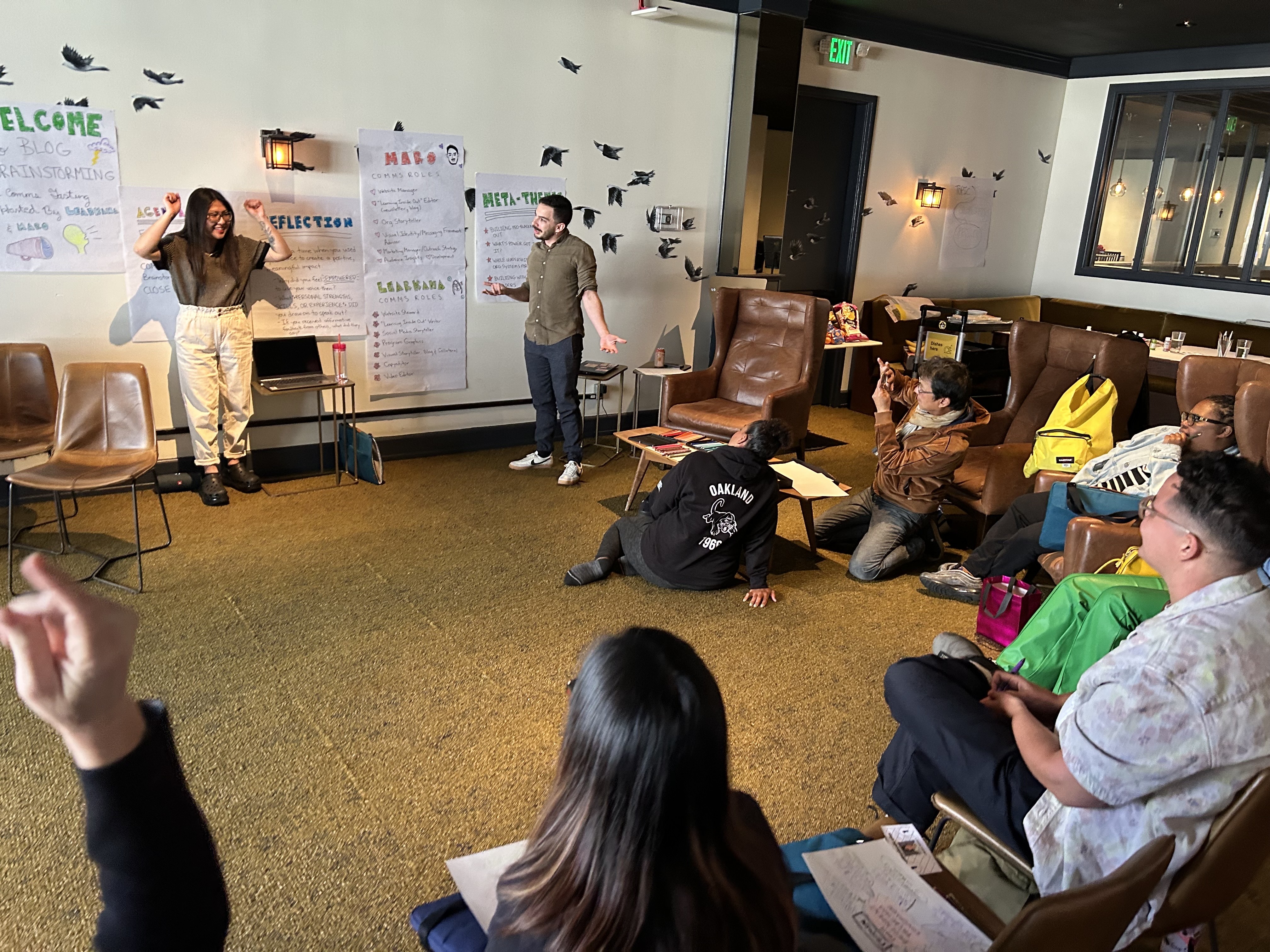
When we partner with organizations on capacity building and consulting projects focused on deep organizational change, we center relationships while applying an equity lens. We know that building trust together helps us get to the heart of a problem or structural issue. Moreover, healthy and resilient relationships get equity done. And to achieve equity, our approach prioritizes the resourcing of relationships by identifying and exploring how they are impacted by power, privilege, and systems of oppression.
Ultimately, we believe people already have the insights and solutions they need to reach their team or organization's goals—we're simply here to co-create the space and support to identify and draw them out. We are focused on working in collaboration with leaders and organizations—not reinforcing ideas of top-down expertise.
If you're new to learning with CompassPoint (or if it's been a while), we encourage you to explore our vision and values, register for one of our public workshops so you can experience our content firsthand, or read our blog to learn a little bit more about us.
If our approach resonates with you and aligns with your objectives, please fill out a brief Inquiry Form to provide us with initial insights, or send us an email if you have any questions. Our team will be sure to follow up with you within the next 7-10 business days. We look forward to exploring opportunities to collaborate with you!
Available Offerings
Facilitation of Courageous Conversations
Interpersonal Workplace Mediation
Facilitation of Courageous Conversations
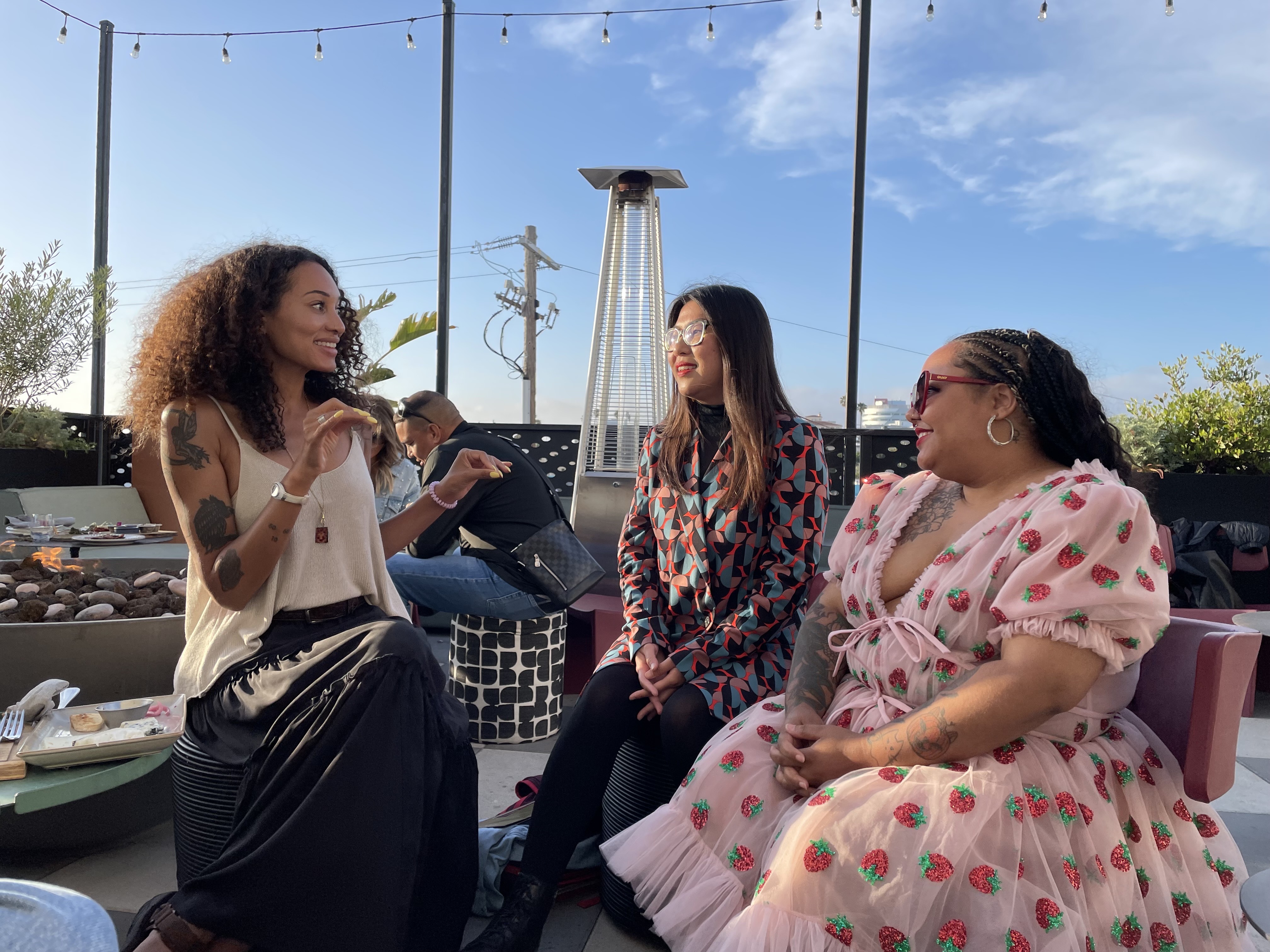
At CompassPoint, we know that multiple truths can exist at once. We see courageous conversations as a pathway for individuals, teams, and entire organizations to uncover these truths together even as they generate tensions, because we believe greater alignment and deepened relationships can be found on the other side.
Through this offering, we support you and your team/organization in co-creating a structured container for the conversation that invites in vulnerability, empathy, discomfort as a catalyst for learning, and focused listening. This includes establishing community agreements and identifying, mitigating, and shifting power imbalances as they arise before and during a conversation. We recognize that when power perpetuates the status quo, conversations may not unfold with the honesty and courage deserved by all, which is why it is critical for us to facilitate with an analysis of power dynamics and how they may impact whose voices we hear in the space. It is our intention and objective as facilitators to ensure that we cultivate conversations that go beyond simply "naming" truths and towards actually facing these truths collectively, in service of team development and shared learning.
Key Details on Process + Deliverables
1-2 Facilitators. These facilitators will support either a single conversation or a series of conversations involving at least four staff and/or board members.
Preparation and Context Download. This involves gathering perspectives from at least two individuals involved, with a focus on understanding the core issues that necessitate the courageous conversation.
Debrief Process. The debrief process includes defining next steps and establishing accountability mechanisms that build upon the outcomes of the courageous conversation.
Virtual or In-person Options Available! We offer flexibility on conducting the conversation(s) virtually or in-person, depending on needs, preferences, and logistical considerations.
This offering builds upon content from two of our public workshops, Conflict Resolution with Power and Privilege in Mind and Facilitation Skills: Creating Powerful and Purposeful Meetings
Interpersonal Workplace Mediation
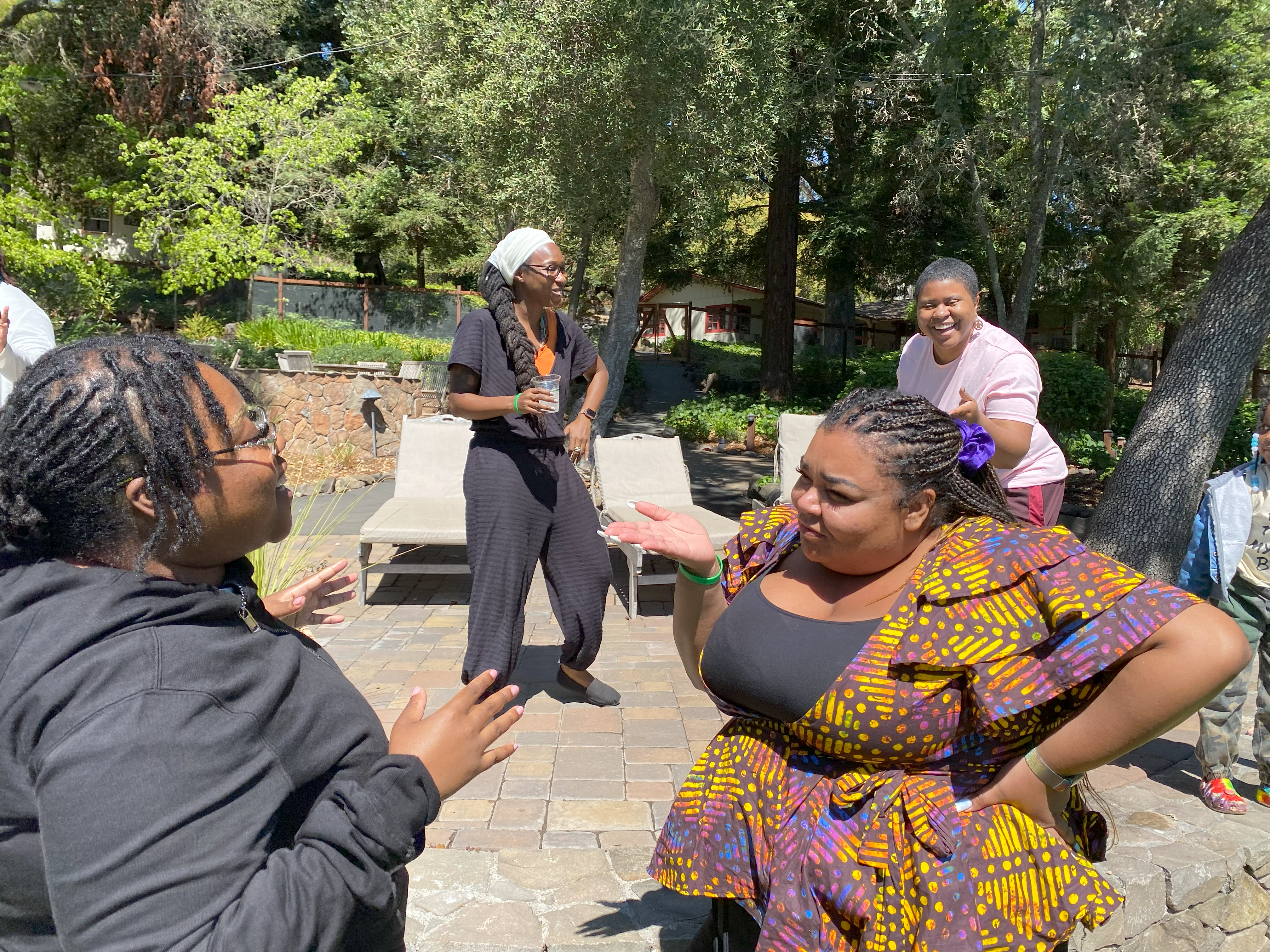
We believe that centering people and relationships gets equity and justice work done. It is essential to tend to the relationships in our workplaces in order to maintain a healthy, resilient, and sustainable work culture where everyone feels safe, supported, and can thrive.
Of course, even the healthiest workplaces can struggle when a conflict surfaces and goes unaddressed. Outside mediation is one practice that can be used when a conflict between co-workers cannot be resolved internally. Although conflict often has negative associations, we view conflict as normal, inevitable, and as an opportunity for generative learning and transformation. Our trained mediators create supportive spaces for individuals, regardless of organizational “rank” or title, to approach their conflict with principled engagement and on equal footing, which opens up the possibility of lasting and transformational change that can shift power imbalances.
Key Details on Process + Deliverables
Intake Sessions. We will gather information on the history, perspectives, needs, and hopes from parties involved in the conflict. We will also provide an overview of the mediation process and can offer coaching if needed to prepare parties for mediation.
Mediation Sessions. We will schedule two sessions (adjustable as needed) for the involved parties to address their conflict and engage in structured mediation, which will be facilitated by two certified mediators.
Outcome Documentation. We will document and prepare mediation outcomes for the involved parties, and aim for mutually agreed-upon commitments to move forward collaboratively.
This offering builds upon content from our public workshop, Conflict Resolution with Power and Privilege in Mind.
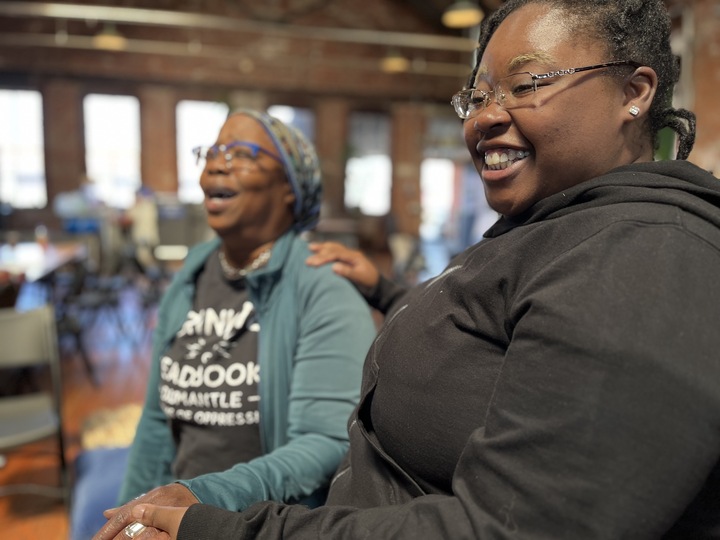
Peer Coaching Circles

Coaching is a way of communicating that can transform power dynamics in liberatory ways. Coaching skills can help put into practice the idea that the people closest to the problem are closest to the solutions. When we coach each other, we center self-determination, create space for accountability, and unlock each other’s leadership gifts. Patriarchy, white supremacy, capitalism, and other systems of oppression thrive when “solutions” are imposed on our bodies and our communities without our participation or consent. A coaching approach can counter the impact of these oppressive systems by inviting us to engage in focused listening and inquiry as skills through which we can support others in finding their clarity and their solutions.
We believe that anyone, regardless of their position, has the potential to grow and help others grow through coaching skills. Peer coaching circles are a way for you to build your coaching skills and to experience being coached in support of your own growth. CompassPoint can provide guidance, structure, and resources for launching peer coaching circles with your team or organization.
Benefits
- Confidential network of peers
- Real time support for real issues
- Disrupt "imposter syndrome"; build belief in yourself and others
- Build interpersonal leadership skills
- Renew purpose and motivation
Basic Principles
- Finding the right problem is as important as solving it
- The person with the problem is the expert on the problem, and closest to solutions
Key Details on Process + Deliverables
Scoping Process. We refine the scope and roles of the project based on your team or organization's needs and capacity. Dates for training and number of participants are confirmed.
Training Sessions. We will facilitate one coaching skills training and one peer coaching training over the course of several sessions for all participants.
Peer Coaching Circles Launch. Peer coaching circles begin with CompassPoint facilitation in each of the launch sessions.
This offering builds upon content from our public workshop, Coaching Skills for Leaders.
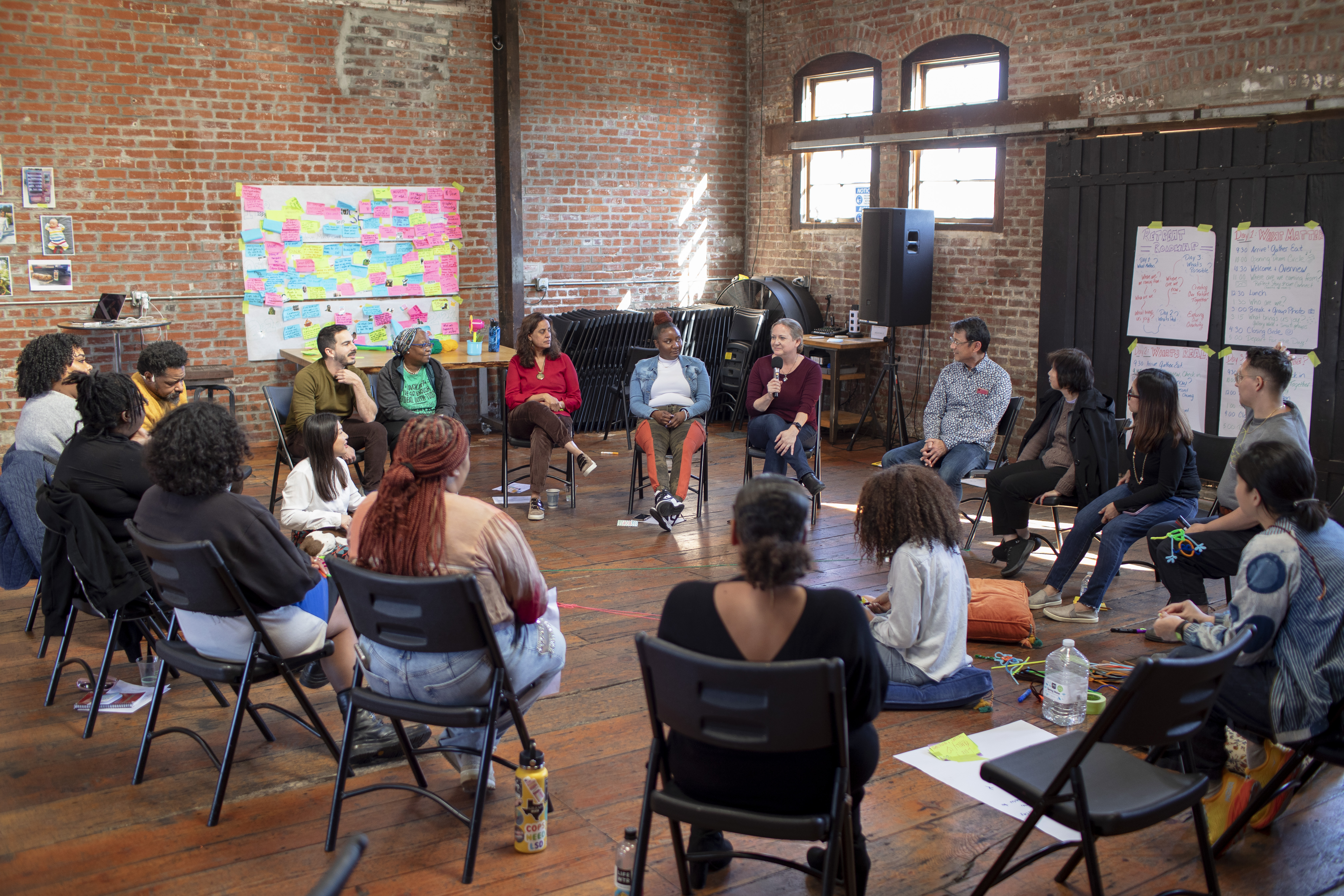
Team Culture Building Retreats
At CompassPoint, we know that spending intentional time with your teams can pave the way to building trust, gaining alignment, celebrating wins, and overcoming moments of organizational adversity. We also know that retreats can feel risky, emotionally charged, vulnerable, and challenging, especially for those on the margins within their organizations.
Our approach to retreat facilitation is to fully understand two things: the current culture a team has, and the aspirational culture a team is working towards. Given this, we strive to create retreat spaces for teams that honor both what’s present in the room and what a team is striving to achieve. We center joy, consent, embodiment practices, and authenticity as ways to connect with others in our facilitation practice. We prioritize co-designing retreats with our partners so they know what to expect before stepping into the room.
Key Details on Process + Deliverables
Co-Design Process. Our team will partner with 1-3 individuals from your organization.
Partnership with Team Leaders. We are willing to partner with team leaders to co-facilitate specific content.
Retreat Design. We can design 1 to 3-day retreats for teams or the entire organization, depending on your needs.
Facilitators. 1-2 facilitators will support you throughout the process.
Logistics Coordination. Requires at least one organizational contact to coordinate logistics of the retreat (e.g., location, food, timing, etc.).
This offering builds upon content from two of our public workshops (Manage Your Energy, Reclaim Your Time: A Path to Personal Sustainability, Facilitation Skills: Creating Powerful and Purposeful Meetings) and our cohort-based learning series, Self-Care for Black Folks.
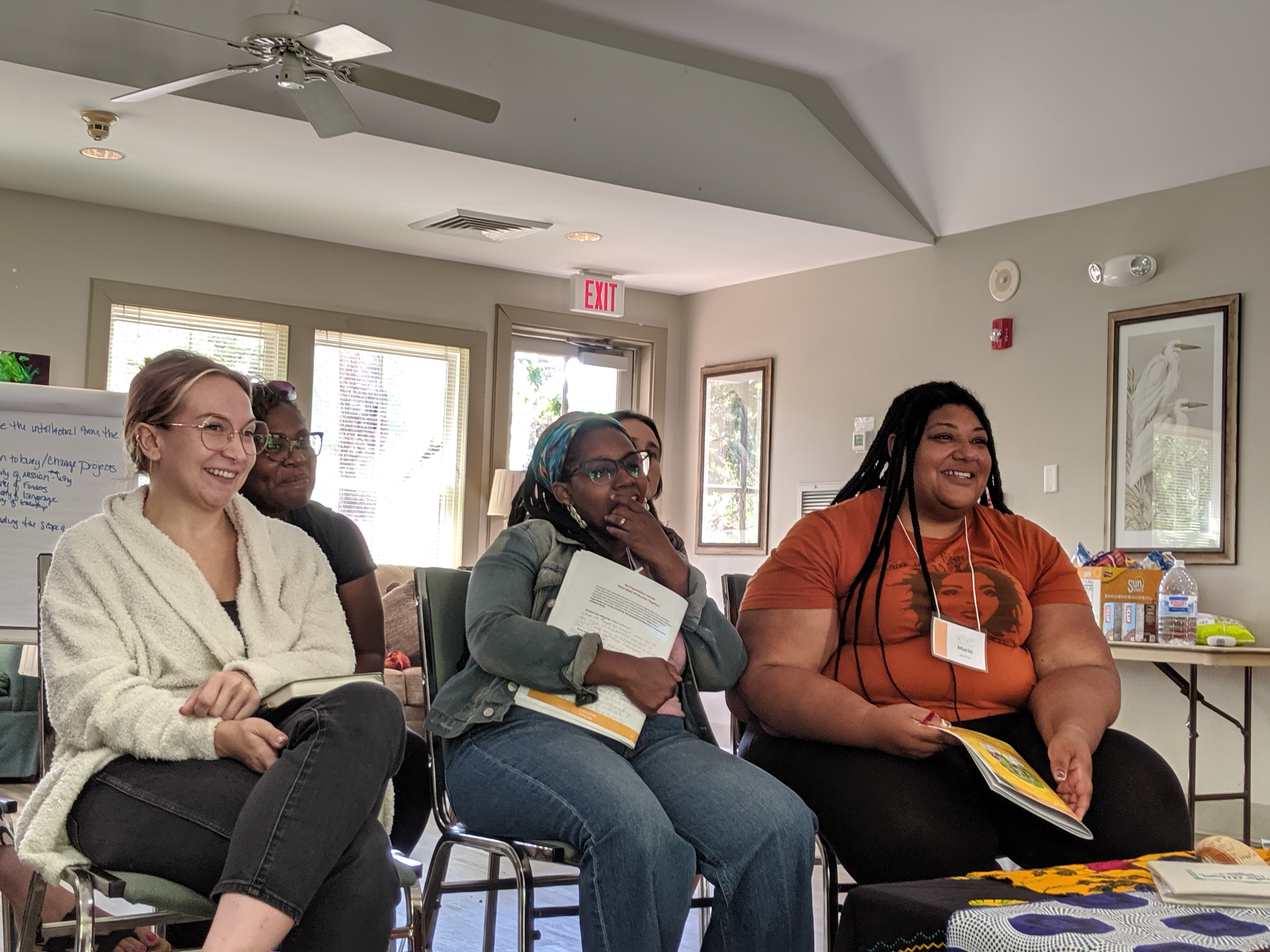
Workplace Equity and Justice Assessment
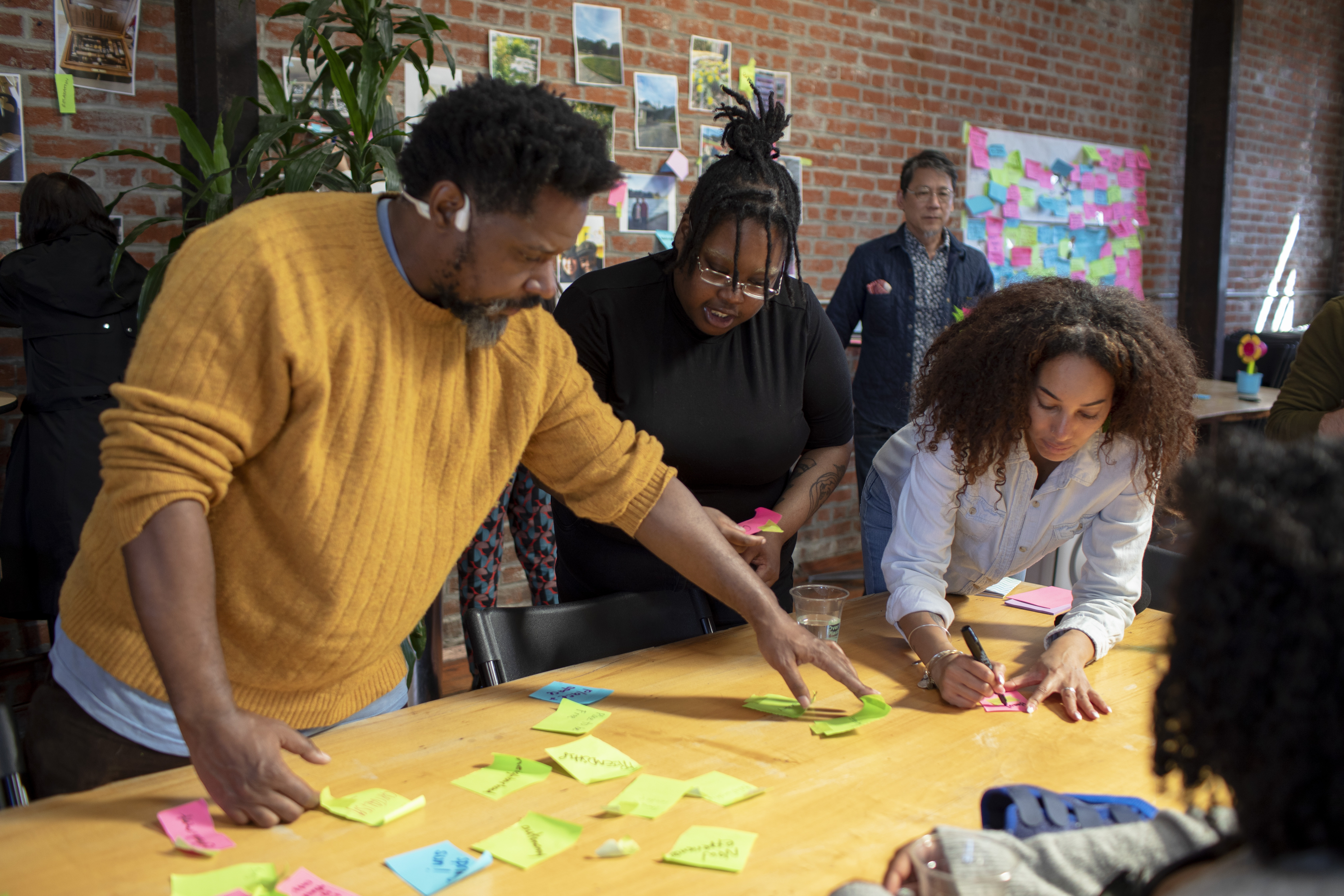
We believe that creating just and equitable workplaces requires identifying, mitigating, and addressing power imbalances. Our workplace equity and justice assessment provides organizations with an in-depth assessment of current equity and justice opportunities and challenges across every facet of the organization. We co-design the assessment with an internal team at the organization, conduct an in-depth analysis of the data, and provide feedback on what is working well and what changes can be made to align with equity commitments and justice-oriented strategies. Through this partnership, we provide a fresh perspective on working toward internal equity and justice that can be central to an organization’s theory of change.
Key Details on Process + Deliverables
Survey and Assessment Creation.
Interpretation of Survey Results. 1-2 consultants work with an internal team at the organization to interpret the survey results.
Intensive Report. Includes qualitative and quantitative insights plus CompassPoint team’s synthesis of data collected.
Guided or Facilitated Meaning-Making. With a designated team or the entire staff at the organization.
Recommended Next Steps. Includes a clear plan for your organization's future actions.
This offering builds upon content from our public workshop, Centering People During Organizational Change and Transition.
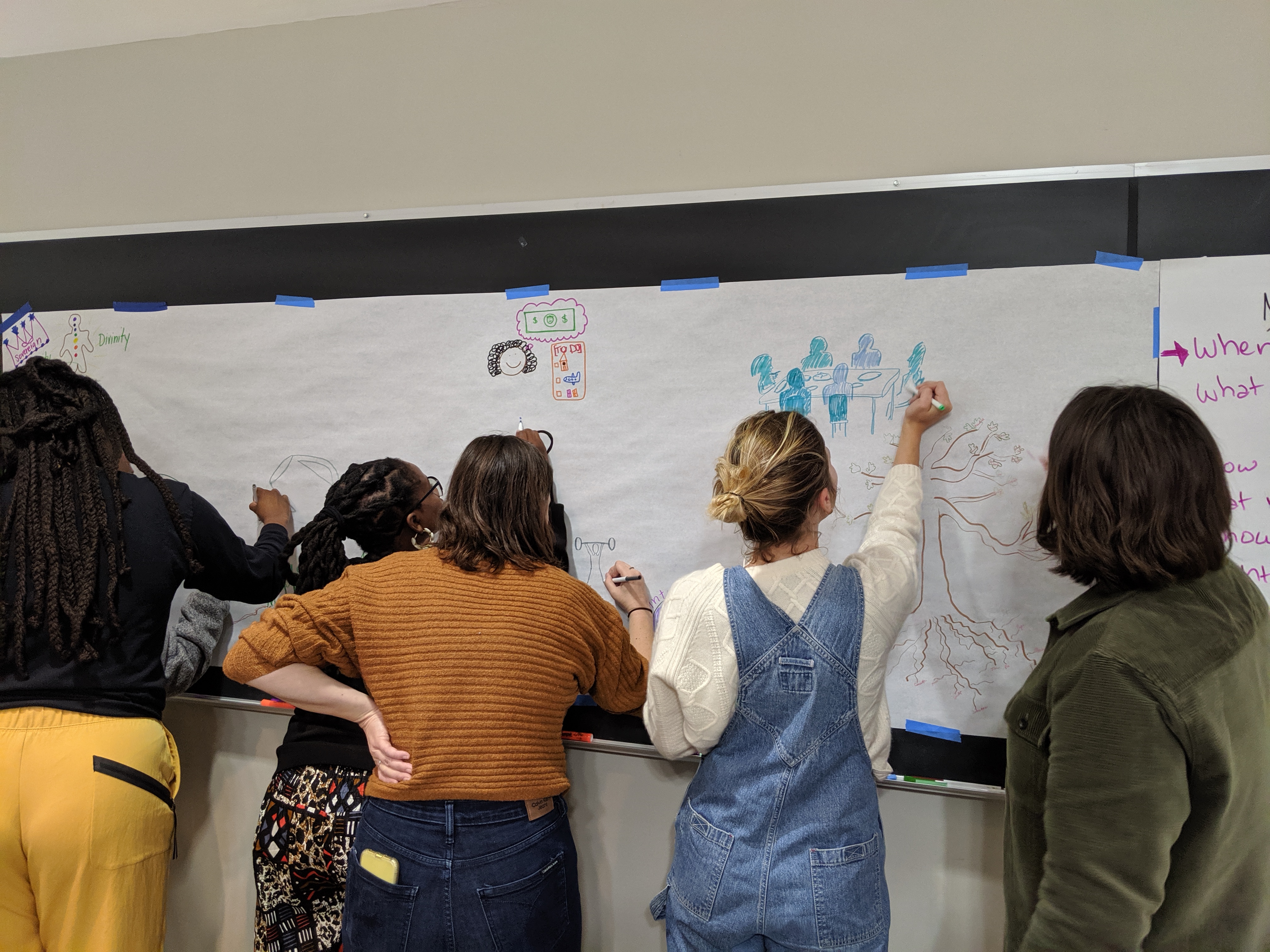
Contract Trainings
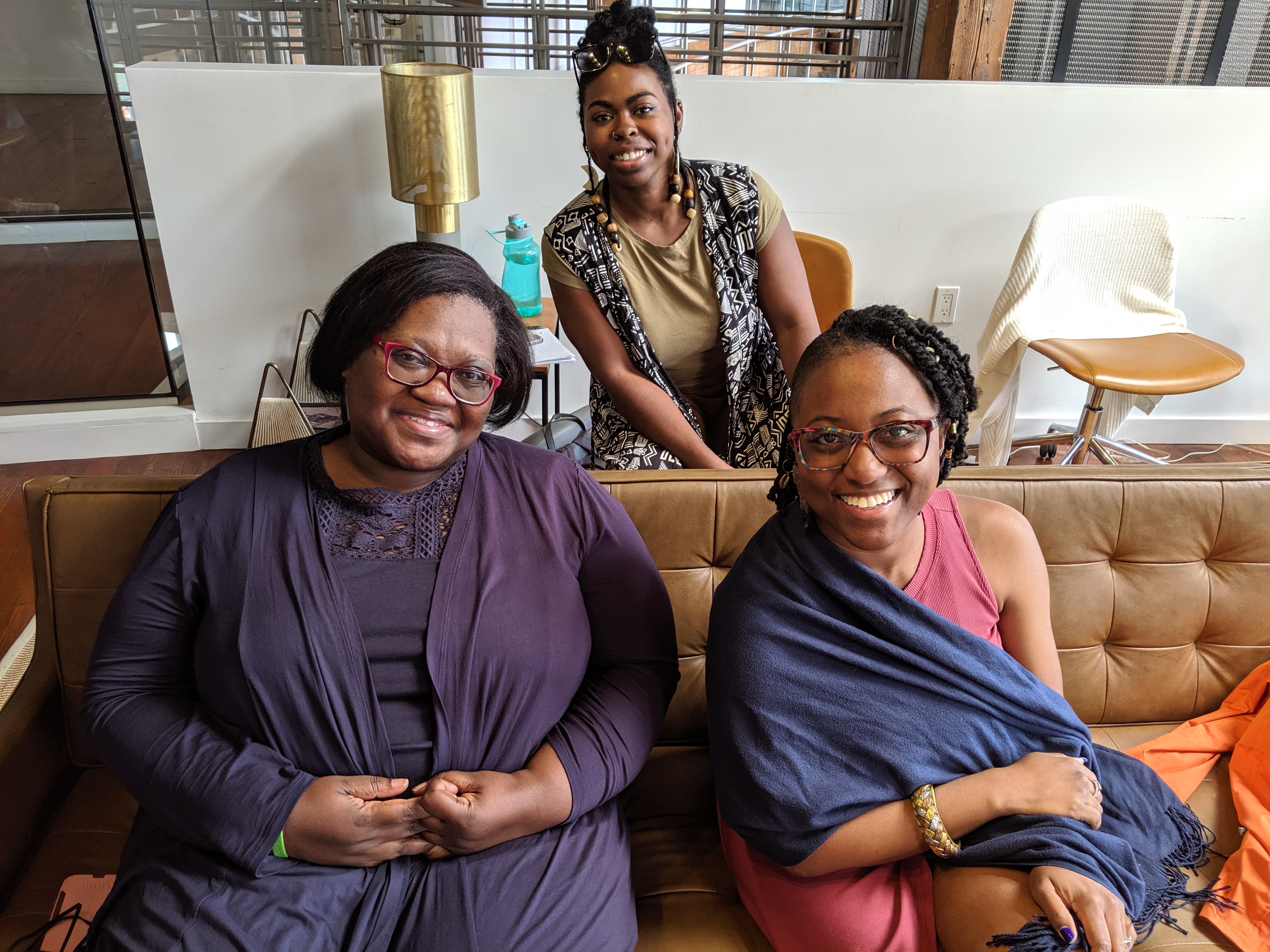
We are happy to offer any of our current public workshops as part of a contract training tailored for your organization! This is a great opportunity for staff at your organization to build skills, learn tools, and engage in sensemaking together in service of a more aligned, sustainable, and liberatory work culture that supports people and treats them as whole. Check out the workshop descriptions below to learn more about what content best aligns with your organization's needs.
Centering People During Organizational Change & Transition
Conflict Resolution with Power & Privilege in Mind
Facilitation Skills: Creating Powerful & Purposeful Meetings
Finance Fundamentals: Understanding Key Language, Concepts, and Practices
From Fundraiser to Resource Mobilizer: Changing Our Perspectives & Practices to Shift Power
Liberatory Principles & Practices for White Supervisors
Manage Your Energy, Reclaim Your Time: A Path to Personal Sustainability
Centering People During Organizational Change & Transition
Do you feel it, too? The world is calling us to adapt over and over again in deep ways to face a wide variety of challenges. In the midst of constant change, how are you centering what matters most: your team's ability to navigate transitions? In a time of significant change in our world and our organizations, it’s more important than ever to gain skills and perspectives about how to lead people through transition.
Training Objectives: 1) Understand the distinction between change (an event or situation) and transition (a process) and recognize the impacts on people in your organization, 2) Be introduced to the Margin to Center framework as a way identify solutions to challenges, and 3) Learn to distinguish between adaptive challenges and technical fixes and how they apply to a change occurring in your organization.
Coaching Skills for Leaders
Coaching helps put into practice the idea that the people closest to the problem have the solutions. When we coach each other, we center self-determination, create space for accountability, and unlock each other’s gifts. Patriarchy, white supremacy, and capitalism thrive when “solutions” are imposed on our bodies and our communities without our participation or consent. For BIPOC leaders especially, coaching skills can be a powerful way to bring our wisdom, experiences, and creativity front and center.
Training Objectives: 1) Learn the coaching mindset (“How attitude, openness, and the outlook create the right space for others’ discovery and development”), 2) Build on your communication abilities through three key coaching skills (“deeper/engaged listening,” “inquiry,” and “championing”), 3) Learn how coaching interrupts dominating behavior and builds power with others, and 4) Practice, practice, practice!
Conflict Resolution with Power & Privilege in Mind
When we get into conflict with each other (at our organizations or in movement spaces), we often do so without taking time and space beforehand to slow down and explore our own relationship to conflict—namely, what drives our reactions and how our approach to conflict relates to power and privilege. This is a space to learn how to shift power dynamics by employing communication skills like listening, inquiry, and empathy.
Training objectives: 1) Learn five conflict resolution styles and how they intersect with positional power and social privilege, 2) Identify how you want be your “best self” in conflict, and 3) Build on your abilities of listening, inquiry, and empathy as skills for working through conflict.
Facilitation Skills: Creating Powerful & Purposeful Meetings
Meetings! We’ve all experienced what it’s like when they go wrong: conversations that go nowhere and leave people feeling frustrated. Additionally, our approach to planning meetings doesn't always take into consideration how race, gender, power and privilege show up in our teams. This training offers tools and activities to learn effective meeting habits, develop skills to plan a meeting, explore how to wield power to unlock everyone’s gifts and contributions, get the right voices in the room, and guide conversations toward meaningful goals.
Training Objectives: 1) Learn how to use the “purpose, outcome, and process” (P.O.P) format to design a meeting, 2) Learn how to center marginalized voices in meetings, and 3) Learn strategies for interrupting oppressive power dynamics in meetings.
Finance Fundamentals: Understanding Key Language, Concepts, and Practices
Dealing with money is too often seen as the uninspired but necessary work of resourcing social justice and nonprofit work. In reality, financial knowledge and practices aren’t just technical—they can be transformational and build power, too. But in order to shift our systems and approaches to money in ways that better reflect social justice values, we need to grow access and understanding about finance across our teams. This training is an opportunity to understand core language and skills about nonprofit finance in an expressly political context where we critically examine how capitalism, patriarchy, and white supremacy shape nonprofit financial reporting and systems.
Training Objectives: 1) Learn key nonprofit financial terms and be better prepared to use that language in financial discussions within your organization, 2) Build upon your ability to interpret nonprofit financial statements and identify at least one thing they reveal about an organization’s financial model, 3) Understand the difference between revenue, expense, and wealth and how they contribute to organizational financial health and program impact, and 4) Recognize how institutionalized and internalized white supremacy culture shapes nonprofit financial reporting practices
From Fundraiser to Resource Mobilizer: Changing Our Perspectives & Practices to Shift Power
The practice of fundraising is going through a reckoning, and the way we envision the role of fundraisers is changing. Many fundraising models and “best practices” center on the idea that wealthy donors are the heroes of the story. What would resourcing our missions look like if we were more like resource mobilizers deepening the civic and political journeys of all of our supporters instead? In this training, we invite fundraisers, leaders, organizers, and volunteers (new and seasoned alike) to imagine their roles more expansively and embrace approaches to mobilizing resources that build and amplify community power.
Training Objectives: 1) Reimagine the role of “fundraiser”—from being reactive to and transactional with donors, to being expansive, creative, and rooted in community, 2) Understand key fundraising terms and principles through the lens of resource mobilization, 3) Practice donor cultivation in ways that tap into community values, connect supporters to larger movements, and build community power, and 4) Reflect on your role as fundraiser, identify practices you want to leave behind, and what new approaches you’ll grow as a resource mobilizer.
Liberatory Principles & Practices for White Supervisors
White supervisors have disproportionate control and positional power within social justice organizations, movement spaces, and the nonprofit sector. If we’re going to shift power across our organizations, transforming the way white supervisors show up is key. This training provides tools and space with peers to deepen your commitment to dismantling white supremacy culture and practice liberatory and transformational supervision skills.
Training Objectives: 1) Explore what shared power is and deepen a personal commitment to it in your supervision practice, 2) Recognize your opportunity and responsibility to cultivate shared power in social justice and nonprofit organizations, and 3) Identify personal and institutional barriers to shared power, their connection to white supremacy culture, and learn and practice skills to overcome them.
Manage Your Energy, Reclaim Your Time: A Path to Personal Sustainability
When we manage our time and energy solely through the capitalist value of “productivity over people,” we're often unable to tend to our whole selves and practice the self-care habits that may sustain us for the long haul. Showing up to nonprofit and social justice work requires us to move with purpose and cultivate a culture of personal sustainability. Managing our energy to reclaim our time means understanding that our personal sustainability is directly related to our daily self-care practices.
Training Objectives: 1) Identify obstacles—internal, interpersonal, and institutional—that are hindering personal sustainability, 2) Learn a framework for energy management that includes the four core energy needs: physical, emotional, mental, and spiritual, and 3) Learn new perspectives, strategies, and practices for self-care by understanding how to manage your energy and time differently.
Supervision: Relationships & Structures That Help Us Thrive
When you think of supervision, what comes to mind? No doubt, those ideas have been deeply shaped by power dynamics and larger cultural narratives we’re all swimming in. Supervision is both a structure and a relational practice that keeps us accountable to others and helps us grow. Many of us have been conditioned to think that supervision means having power over others instead of building power with others—but when we supervise in a way that breaks with narratives from the dominant white supremacist culture, we open the door to mutual flourishing.
Training Objectives: 1) Recognize how liberatory and transformational commitments and practices can be an antidote to white supremacy, patriarchy, and capitalism within supervision, 2) Identify how the four types of power intersect with supervision, and 3) Gain skills (setting expectations and sharing feedback) to incorporate into your supervision practices.
